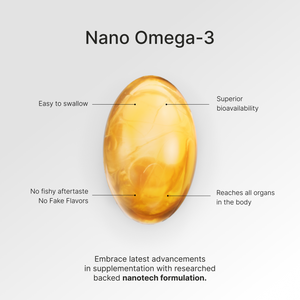Dementia is a broad term covering various brain conditions that affect thinking, memory, and behavior. While Alzheimer's Disease is the most common type of dementia, there are several other forms, each with unique characteristics.
Let's explore what dementia is, how it differs from normal aging and Alzheimer's, and ways to support overall brain and body health.
What is Dementia?
Think of dementia as an umbrella term covering different conditions affecting brain function. Just as "cancer" describes many types of cellular problems, "dementia" includes various brain disorders that affect cognitive abilities.
The most common type is Alzheimer's Disease, which accounts for 60-70% of cases. Other types include Vascular Dementia, which occurs after stroke or blood vessel damage, Lewy Body Dementia, which shares some features with Parkinson's disease, and Frontotemporal Dementia, which particularly affects behavior and language.
Differences Between Dementia, Alzheimer's, and Normal Aging
Understanding the differences between dementia and normal aging helps families recognize when to seek support. In normal aging, a person might occasionally forget a name but remember it later, or take longer to learn new technology but still manage to use it. They maintain their personality and can live independently, even if some tasks take more time than before.
In contrast, dementia causes progressive changes that interfere with daily life. Memory loss goes beyond occasional forgetfulness to affect recent conversations and events. Communication becomes increasingly difficult, with people struggling to find common words or follow conversations. Independence gradually declines as familiar tasks become challenging.
Alzheimer's Disease, while a type of dementia, has its own specific pattern. It typically begins with memory loss and gradually affects other cognitive functions. Other types of dementia might start with personality changes, movement problems, or language difficulties, depending on which brain areas are first affected.
Supporting Brain Health with Dementia
Healthy Diet
Your brain requires specific nutrients to function optimally. Focus on colorful fruits and vegetables rich in antioxidants (pomegranates, berries, leafy greens). Healthy fats from sources like avocados, nuts, and fish are also important, and adequate hydration is necessary. Follow a doctor’s recommendations on water intake, but the usual recommendation is 8 glasses of water per day.
Another thing to consider is increasing the omega-5 fatty acids you consume. Research indicates pomegranate compounds (rich in omega-5, also called punicic acid) may benefit short-term memory formation and retention. These effects appear linked to their ability to support the formation of new neural connections, potentially helping maintain normal cognitive function as we age
Physical Activity
Physical activity plays a crucial role in supporting overall health for people with dementia. Regular movement, whether through gentle walking or chair exercises, helps maintain physical function and may support mood and sleep. Activities should be appropriate to the person's abilities and supervised for safety, but great options include walking, weight lifting, and balance activities like yoga.
Brain Games
Cognitive engagement remains important throughout the progression of dementia. Simple puzzles, familiar music, and looking through photo albums provide mental stimulation while creating enjoyable moments. Art activities and storytelling offer ways to express creativity and maintain connections with others.
Socialization
Social connection becomes increasingly important as dementia progresses. Regular family visits, group activities, and shared meals help maintain relationships and provide emotional support. Even simple conversations or looking at photos together can create meaningful interactions.
Supportive Environment
The physical environment plays a crucial role in supporting someone with dementia. Clear pathways and good lighting help prevent falls, while familiar objects provide comfort and orientation. Maintaining comfortable temperatures and reducing noise helps create a calming atmosphere.
Daily Routine
Daily routines become increasingly important as dementia progresses. A consistent schedule with regular activities and quiet periods helps reduce confusion and anxiety. Gentle transitions between activities and familiar patterns provide structure and security.
Communication
Communication requires patience and understanding when caring for those with dementia. Speaking clearly, giving one instruction at a time, and maintaining a positive tone helps support successful interactions. Non-verbal cues become increasingly important as verbal communication becomes more difficult.
Planning for the Future
As dementia progresses, needs change and additional support becomes necessary. Early planning helps families prepare for future care needs and make important decisions while their loved one can participate in the process. This includes discussing care options, gathering resources, and building support systems.
Legal and financial planning deserves early attention as well. Making decisions about future care, organizing important documents, and discussing wishes for the future helps families prepare for changing needs. Professional guidance can help navigate these important decisions.
Supporting caregivers is crucial for sustainable care as well. Regular breaks, support groups, and professional help prevent burnout and ensure better care for the person with dementia. Understanding available resources and accepting help when needed supports both caregiver and care recipient.
Living with dementia presents unique challenges, but understanding the condition helps families navigate this journey more effectively. While dementia causes progressive changes in brain function, there are many ways to support quality of life throughout its progression. From maintaining physical activity and social connections to creating supportive environments and establishing helpful routines, each step makes a difference.
Remember that every person's experience with dementia is unique. What works well for one person might need adjustment for another. The key is to remain flexible, patient, and focused on supporting each person's individual needs and abilities. Most importantly, a diagnosis of dementia doesn't mean life stops - it means adapting to new ways of living and finding joy in daily moments.
Medical Disclaimer
The information provided on this website is for educational purposes only and is not intended as medical advice. This blog or the writer is not a licensed healthcare professional, and the content should not be used as a substitute for professional medical diagnosis, treatment, or advice. Always consult with your physician or other qualified healthcare provider before starting any new treatment or making any changes to your healthcare routine.








